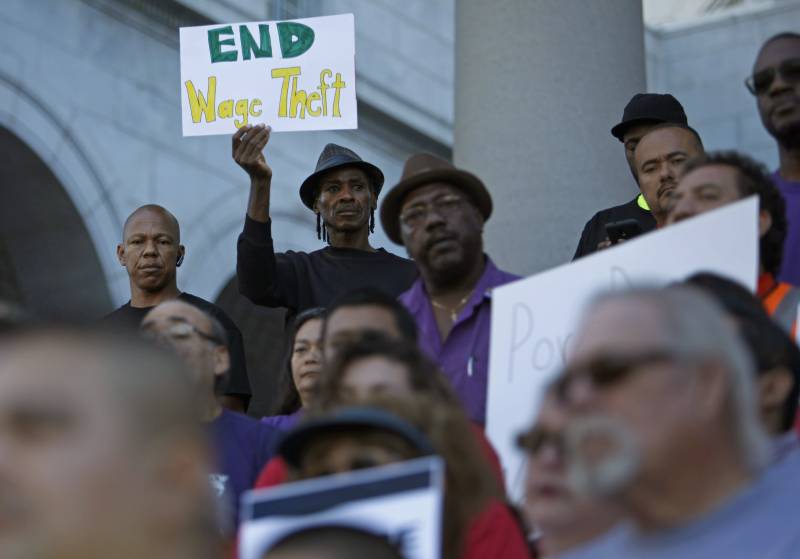Here are the morning’s top stories on Friday, August 30, 2024…
- Federal labor enforcement authorities recover millions of dollars for workers each year from employers who break minimum wage, overtime pay and other laws. But a significant chunk of that money never makes it to wage-theft victims, and thousands of those victims are from California.
- State lawmakers are jockeying to push remaining bills through to Governor Newsom before the Legislature adjourns on Saturday.
- A bill that would compensate people for property taken by racially-motivated uses of eminent domain is headed to the governor’s desk after being approved by the state legislature.
- The California Department of Food and Agriculture is investigating the possible introduction of the H5N1 bird flu at three dairy herds in the Central Valley.
Significant Amount Of Wage Theft Money Never Collected By Victims
Over the last three years, the U.S. Department of Labor has collected $166 million that remains unclaimed by almost 200,000 workers. About 15,000 of them are in California. These wage-theft victims have up to three years to claim the money before it’s turned over to the U.S. Treasury. But many don’t know compensation is waiting for them.
The labor department targets low-wage industries that rely heavily on transient or immigrant workers, including restaurants, agriculture and construction. But by the time those cases are resolved, many workers have moved on, to other jobs, or perhaps they’ve changed their address or phone number. Also, undocumented immigrants are often afraid of interacting with a federal agency, because they worry that could lead to deportation.
Which California Bills Will Governor Newsom Sign Into Law?
For California laws, the buck does really stop at Governor Gavin Newsom’s desk. While the Legislature approves hundreds of bills each session — and will add to that list before adjourning Saturday — Newsom decides whether they become law.
As of Aug. 15, Newsom had signed 164 bills and vetoed four. He has until Sept. 30 to decide on bills passed in the final days; he sometimes waits until right before the deadline to weigh in on contentious ones.
